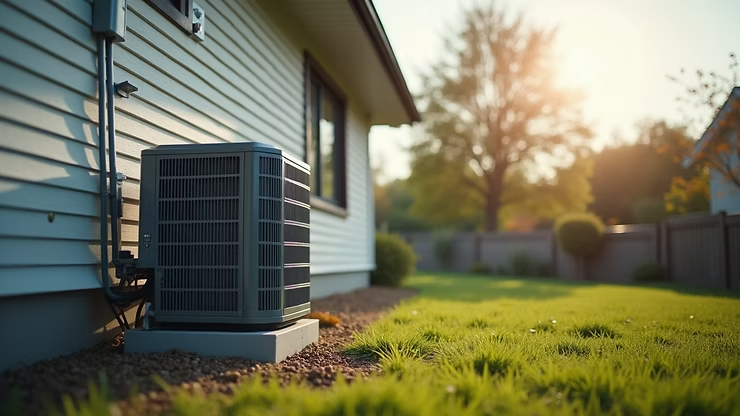Home renovations can be exciting, but they also come with challenges, especially regarding heating, ventilation, and air conditioning (HVAC) systems. For clients of RPK Construction, understanding key HVAC issues during a home renovation can significantly impact comfort and efficiency. This guide explores essential considerations to keep in mind as you embark on your renovation journey.
Assessing Your Current HVAC System
Before starting renovations, it’s critical to evaluate your existing HVAC system. Is it equipped to handle changes in your home’s layout? Consulting with an HVAC specialist can help analyze your system’s efficiency and capacity.
Be sure to check the age and condition of your system. For instance, if your unit is over 15 years old, it may struggle with increased load and face a higher likelihood of breakdown during the renovation.
Choosing the Right HVAC System
If your assessment indicates that your current system is insufficient, you might need to invest in a new HVAC system. Several options are available, including central systems, ductless mini-splits, and heat pumps. The right choice depends on factors such as:
- Home size: Larger homes often require more robust systems to ensure even heating and cooling.
- Climate: Areas with extreme temperatures may benefit more from systems designed for that climate.
- Energy efficiency: Newer models often have higher SEER ratings, which can lead to savings—reports show homes using high-efficiency units can save up to 30% on energy bills.
Take the time to research the advantages and disadvantages of each system. This ensures you find the best fit for your renovation needs.

Planning for Ductwork
Ductwork is vital for your HVAC system’s efficiency. If your renovation involves layout changes, you might need to modify existing ducts or install new ones.
Key considerations include:
- Location: Ensure ducts are positioned for optimal airflow throughout the home; poorly placed ducts can create hotspots or cold zones.
- Size: Proper duct sizing is vital for efficiency. According to the U.S. Department of Energy, undersized ducts can reduce system efficiency by 20-30%.
Collaborating with RPK Construction can streamline this process, ensuring that modifications fit seamlessly with your renovation layout.
Insulation Considerations
While focusing on aesthetics and finishes, many homeowners overlook insulation, which is crucial for HVAC efficiency. Poor insulation can lead to energy cost increases as your HVAC system struggles to maintain comfort.
Examine your home’s insulation, especially in attics, basements, and exterior walls. Upgrading insulation during your renovation could yield energy savings of up to 15%, along with enhanced comfort.
Ventilation Requirements
Good ventilation is especially important in renovated spaces that may lack sufficient airflow. If you’re transforming areas like basements or attics into living spaces, you need to ensure proper air exchange. This can prevent moisture buildup and air quality issues.
Consider these methods to improve ventilation:
- Windows: Ensure they open and are positioned for cross-ventilation.
- Air Exchangers: Installing energy recovery ventilators (ERVs) or heat recovery ventilators (HRVs) can significantly improve indoor air quality.
Smart HVAC Technology
Advancements in technology have expanded options for HVAC systems. Smart thermostats and automated systems can enhance comfort and save energy. As you plan your renovation, consider how these innovations might benefit your home.
Features to investigate include:
- Programmable settings that optimize energy use.
- Remote control and monitoring for convenience.
- Compatibility with other smart home devices.
Integrating these technologies into your renovation can contribute to a more efficient and user-friendly home.
Zoning Systems
Zoning systems allow homeowners to adjust temperatures in different areas individually. This is beneficial in larger homes or newly remodeled spaces where various rooms have different heating and cooling demands.
During your renovation, discuss zoning options with your HVAC contractor. Customizing temperature settings in distinct areas can significantly enhance your home’s comfort and reduce energy costs.
Compliance with Local Codes
Local building codes can significantly influence your HVAC choices during renovations. Ensure that all changes comply with local mandates, especially regarding energy efficiency and safety standards.
Ignoring these codes can result in costly fines or hazards in your home. Working with professionals ensures that your project meets all local requirements.
Budgeting for HVAC Upgrades
Effective budgeting is vital when planning a home renovation, particularly for HVAC expenses. Allocate a substantial portion of your budget for HVAC needs, as these often exceed initial expectations.
Consider immediate costs alongside potential long-term savings from energy-efficient upgrades. Transparent budgeting discussions with your contractor will help ensure all HVAC requirements are properly planned.
Final Thoughts
As clients of RPK Construction prepare for home renovations, focusing on HVAC considerations is key for a successful project. From evaluating your current system and planning ductwork to ensuring proper insulation and meeting local codes, each element impacts your home’s comfort and efficiency.
Paying attention to these essential HVAC issues enables you to create a home that blends beauty with functionality, ensuring comfort for years to come.
For more information, contact us today.

Recent Comments